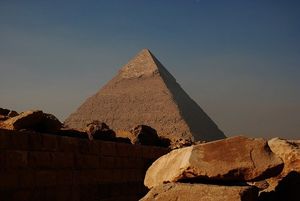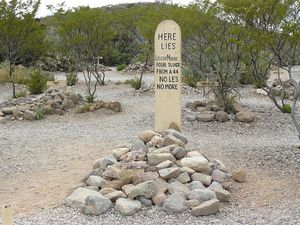I was recently reading the familiar story of Jesus’ birth in Luke 2:8-20. It is in this passage that we read how the birth of Christ was first announced to mankind. Normally, in ancient times, when a king’s son was born, there was a grand public announcement accompanied by great public rejoicing and celebration.
In Egypt, for example, the day of the birth of the future Pharaoh was a national day of celebration. The Egyptians began building his pyramid on that day, and there were great temple festivities. Consider today when someone like Prince Harry is born. The announcement is carried to the world by every newspaper, radio and television station.
No parades
Not so the birth of Jesus. That announcement was made privately, at midnight, without any worldly pomp or circumstance. There were no parades, no formal dances, and no inauguration.
It is also important to see that the announcement of Jesus’ birth was not made to kings, priests and rulers, but to shepherds who were ‘keeping watch over their flock by night’. It was not first proclaimed to the scribes or to the Pharisees, or to the teachers of the law, but to those who followed the lowly occupation of shepherding.
This demonstrates that Jesus did not come for the rich, the royal and the elite, but to the poor, the prostitute and the pedestrian. As verse 10 says, it was ‘for all the people’. Jesus was not born in Pharaoh’s court but in a stable. His was a birth of humility because the child came for those humiliated, a birth of sorrow for the sorrowful.

Urgency
In addition, I was struck by the sense of urgency, haste and excitement affecting all the characters. In verse 9 we read that ‘an angel of the Lord suddenly …’; and in verse 13 ‘suddenly there appeared with the angel a multitude of the heavenly host’.
The shepherds responded to the announcement of Jesus’ birth by saying, ‘Let us go straight to Bethlehem’ (verse 15), and ‘they came in haste’ (verse 16). As they shared the good news with others, ‘all who heard it wondered’ (verse 18), and they returned ‘glorifying and praising God for all that they had heard and seen’ (verse 20).
The shepherds’ response to the birth of the Messiah is worthy of our consideration — theirs was a prompt response. They did not linger, but acted immediately. They found the Christ-child and shared that good news with others.
That sense of zeal was common to believers in the New Testament as they heard the news of the Messiah’s arrival.
In John 1:35-41, the first thing that Andrew does after seeing the Messiah is to find his brother Peter and tell him that the Christ was here. What does Paul do after his conversion on the Damascus Road (Acts 9:17-20)? He immediately went to the synagogues to proclaim the good news of Jesus.
The reaction of the two women at the tomb is similar: ‘They departed quickly … and they ran to report it to the disciples’ (Matthew 28:5-8).

Sense of passion
What is it in your life that you feel desperate to share with others? What is it that elicits such urgency? Is it a new job? Marriage? Birth of a child? Your team winning a sporting event? Certainly all those things are important, but shouldn’t we have that same sense of passion, hunger and zeal to share the news of Christ?
We do not preach a gospel of wishful thinking, but one of fulfillment — the Saviour has come, and he has conquered death. What a message, what a pronouncement! And, indeed, it is an urgent, desperate message to a world that is sleeping the sleep of death.
As Jonathan Edwards asks, how many stand on the rotten covering of the earth with the pit of hell ready to swallow them up? It could be this very day that one of our friends or loved ones descends.
And we have the answer to man’s condition! Do not hide it under a bushel, and do not linger. We must share the gospel, as a dying people to a dying people, as if it were the last thing we were ever to say.















